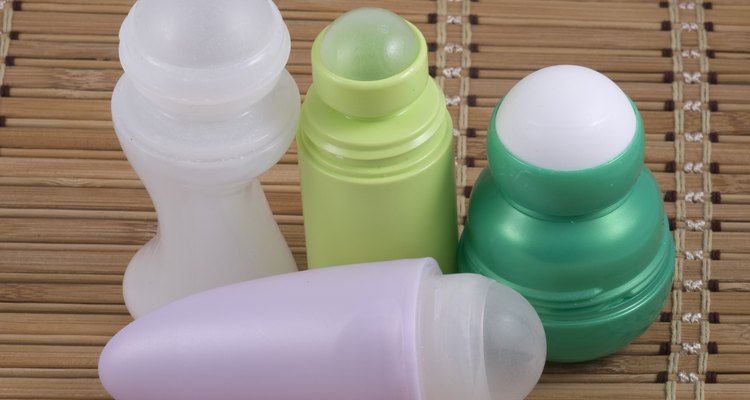
Galyna Semenko/Hemera/Getty Images
Deodorant may seem like a daily hygiene must-have for preventing unpleasant body odor, but deodorants aren't necessarily for everyone. First of all, you should be aware that deodorants merely neutralize or mask body odor, while antiperspirants actually stop sweating through chemical means. Deodorants tend to be less problematic than antiperspirants, but there are still a range of reasons why individuals might want to avoid these products.
Skin Sensitivity
Some people find that deodorants make their underarm skin turn itchy and red. The culprits may be any one of a number of known skin irritants, including artificial fragrances and propylene glycol, a "skin conditioning agent" added to many products to help control the consistency and aid in its absorption. Or you might be allergic to a specific substance. Even deodorants free of synthetic ingredients, such as crystal deodorants and baking soda-based formulas, can cause irritation.
White Marks and Residue
Solid deodorants are notorious for leaving white marks and stains on clothing. Deodorant marks are most noticeable on dark clothing. These marks are embarrassing but harmless and can be easily removed with a little attention. Use a gel, roll-on or aerosol deodorant to avoid such marks, although they may also leave residue on clothing.
Volatile Organic Compounds and the Environment
Aerosol deodorants no longer contain ozone-depleting chlorofluorocarbons, thanks to federal regulations that ban them. But that doesn't mean the sprays don't have an adverse environmental impact. Aerosol deodorants contain a class of chemicals known as volatile organic compounds, or VOCs. These compounds can trigger asthma attacks and contribute to urban smog.
Triclosan and Your Health
Triclosan is an antimicrobial compound that's best-known as an ingredient in antibacterial soaps and body washes. It also makes an appearance as a preservative in many commercial deodorants. Triclosan is considered safe by the FDA, but scientific studies have shown that it can act as a hormone disruptor in animals, particularly with regard to thyroid function. Overuse of triclosan also has environmental effects. Most notably, it helps promote strains of antibiotic-resistant bacteria.
Related Articles
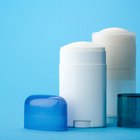
Difference Between Body Spray & ...

The Disadvantages of Deodorants
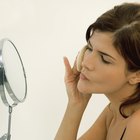
Allergies to Bare Escentuals

The Cause of Yellow Armpit Stains
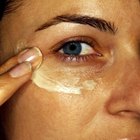
The Best Facial Moisturizer That Won't ...
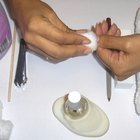
Ingredients of Fingernail Polish Remover

How to Remove the Smell of Cologne From ...
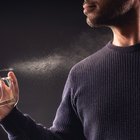
How to Know Which Perfumes Contain ...

Acne Ingredients to Avoid

Spray Tanning Ingredients

Side Effects of Certain Dri

How to Whiten Jeans
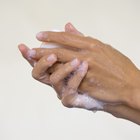
Ingredients in Hand Soap

Merle Norman Ingredients

Body Odors & pH Balances

Palmolive Shampoo Ingredients

Iron-On Transfers & Washing Instructions

Effects of Antibacterial Soap on the ...

How to Get Iron Marks Out of Clothes

Why Do White Clothes Turn Yellow in ...
References
- Slate: Should I Stay Funky?
- Skin Deep Cosmetics Database: Propylene Glycol
- Scientific American: Bad Hair Day -- Are Aerosols Still Bad for the Ozone Layer?
- Environmental Working Group: Cosmetics Chemicals of Concern
- The Seattle Times: Odor-Controlling Alternatives to Deodorant
- Mother Nature Network: 5 Deodorant Alternatives
- U.S. Food and Drug Administration: Triclosan -- What Consumers Should Know
Writer Bio
Lori A. Selke has been a professional writer and editor for more than 15 years, touching on topics ranging from LGBT issues to sexuality and sexual health, parenting, alternative health, travel, and food and cooking. Her work has appeared in Curve Magazine, Girlfriends, Libido, The Children's Advocate, Decider.com, The SF Weekly, EthicalFoods.com and GoMag.com.
Photo Credits
Galyna Semenko/Hemera/Getty Images